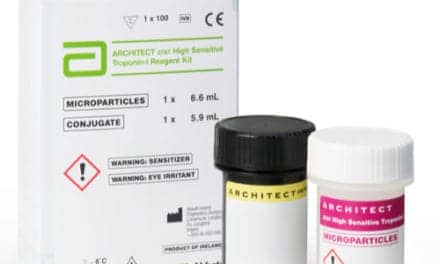Nightingale Health, Helsinki, Finland, the innovator of an internationally recognized blood biomarker technology for studying chronic diseases, will perform large-scale metabolic profiling of the Mexico City Prospective Study cohort, the largest collection of blood samples linked with prospective tracking of disease events in a Mexican-American population.
To do this, Nightingale will analyze the biomarker profiles of blood samples from the 150,000 study participants recruited between 1998 and 2004. These participants provided information about their lifestyle and disease history, along with blood samples and physical measurements, and have been tracked for mortality through linkage to Mexican national mortality databases, with a follow-up resurvey of 10,000 participants between 2015 and 2018. Contracted by the Nuffield department of population health at the University of Oxford, Nightingale will provide novel biomarker data to accelerate research into the chronic disease risk of Hispanic populations.
Nightingale’s acclaimed biomarker profiling technology measures metabolic biomarkers that recent studies have found to be predictive of future risk for heart disease, type 2 diabetes, and many other common chronic diseases. Until recently, technological constraints and prohibitive costs have prevented the analysis of comprehensive biomarker data from large-scale population collections. Nightingale’s technology now makes this viable by measuring more than 220 metabolic biomarkers from a single blood sample.
“The Mexico City Prospective Study provides researchers with a unique opportunity to investigate the major causes of death in a Hispanic population,” says Jonathan Emberson, PhD, associate professor of medical statistics and epidemiology in the Nuffield department of population health. “Biomarker profiling will allow us to better understand how lifestyle, environment, and genetics combine to cause diseases such as cardiovascular disease in a population with high levels of obesity and diabetes.”
Nightingale will perform the assays within 12 months, allowing researchers to start investigating the novel dataset promptly.
“The chronic disease burden is global. Therefore, it’s essential to study populations across the globe, capturing ethnic and socioeconomic differences that underlie disease risk,” says Teemu Suna, CEO and founder of Nightingale Health. “Nightingale’s analysis of metabolic profiles from this cohort of 150,000 will facilitate the evaluation of effective prevention strategies and treatments for the local population. We believe that this novel initiative is a concrete step towards making chronic disease prevention a global effort.”
Nightingale has also recently announced a major initiative to analyze the biomarker profiles of 500,000 samples from the UK Biobank. The company’s nuclear magnetic resonance (NMR) metabolomics technology enables biomarker analysis services for human serum, plasma, umbilical cord blood, and urine samples.
By measuring biomarkers from multiple pathways in a single experiment, Nightingale equips biomedical researchers with comprehensive insights into the effects of lifestyle factors and future disease risk, accelerating breakthroughs in precision medicine. The company is investing and working toward integrating its technology into clinical practice to bring about precision medicine, helping to empower patients to follow their own well-being and take proactive steps to stay healthy.
To learn more, visit Nightingale Health or the Mexico City Prospective Study.







